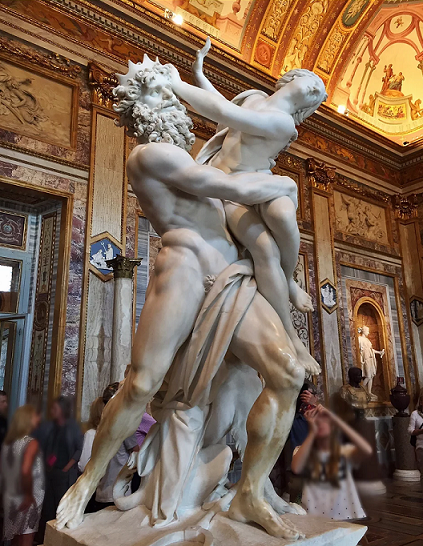by Julia Whatley | Emory Art History Program, Summer 2016
Originally written on June 30, 2016
After participating in the Emory Art History Program, I only have positive things to say because it was an outstanding experience! The course takes students on an exciting and engaging adventure throughout Rome for three weeks. Professor Varner began the program with generous hospitality by hosting us for dinner at his lovely home! The meal was delicious, the conversation engaging and a trip to a well-known gelato spot capped off the evening. Each day began with class on-site, at various museums, ruins, and parks. This style of teaching allowed my peers and me to visually see and personally experience what we were learning. Additionally, we had reading assignments for each class that provided us with more in-depth information. For instance, our materials gave insights to the significance of Roman hairstyles for sculptures, which changed based on the individual and time period. Our professor also articulated this important feature early on and randomly quizzed us to see who could identify the particular hairstyle.
Another exciting aspect of our program was sketching assignments. On certain days, we were asked to travel to two locations on our own, sketch the monuments, and write a description comparing and contrasting them. This was another hands-on exercise that enabled us to learn how to navigate the city on our own. While I learned a tremendous amount about the ancient city of Rome, I also became better acquainted with the modern city that exists today. Many of us used public transportation to get to class each day and used our free time to visit famous churches, try popular pizzerias, and eat gelato. Every day was a new journey, filled with unfamiliar streets and people. That is what made it so exciting – not really knowing what the next day held. It was invigorating to explore because around every corner, in every new piazza, there were fountains, sculptures, obelisks, and architecture to explore. We also experienced the food and mingled with the people in internet cafes, coffee shops, and bars and restaurants.
As my three weeks came to an end, I couldn’t believe the time had already passed. I was also surprised by how many things had evolved from new and unknown to recognizable. Fortunately, I will be going back to Rome to study at John Cabot for the fall semester. I look forward to improving my Italian and expanding my cultural perspectives. I intend to follow the adage, “when in Rome, do as the Romans do!”

